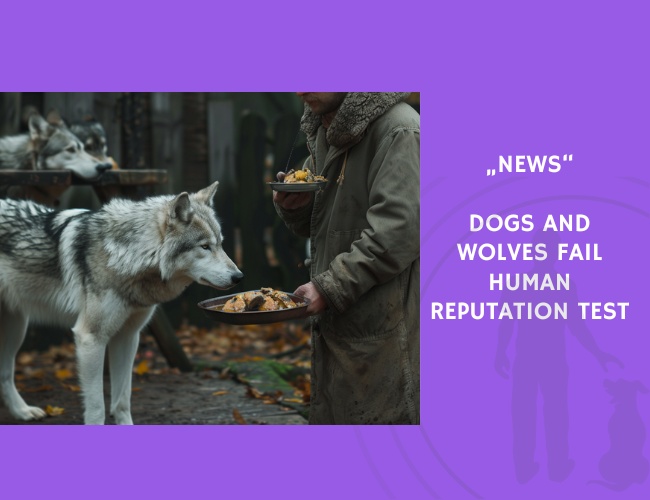In a controlled study, neither wolves nor dogs consistently preferred generous over selfish humans after observing or interacting with them in a feeding context.
Reputation tracking helps animals navigate cooperation, but this 2022 study from PLOS ONE suggests that wolves and dogs may struggle to form human reputations in feeding situations. Researchers tested whether hand-raised, pack-living dogs and wolves could differentiate between a “generous” human (who fed a demonstrator dog) and a “selfish” human (who withheld food).
The study involved three phases: a baseline preference test, an observation phase where subjects watched human-dog interactions, and a test phase where animals chose which human to approach. This was followed by a direct experience phase with the same humans and a second choice test.
Group-level analysis showed no consistent preference for generous individuals after either indirect or direct exposure. However, wolves showed more attention toward generous humans during observation, and some individual animals of both species preferred the generous human after combining both experiences.
The results suggest that reputation formation in canids may be context-dependent and not as robust as expected. This calls for cautious interpretation of claims regarding dogs’ socio-cognitive adaptations to human interaction.
Wolves and dogs fail to form reputations of humans after indirect and direct experience in a food-giving situation DOI: 10.1371/journal.pone.0273043










